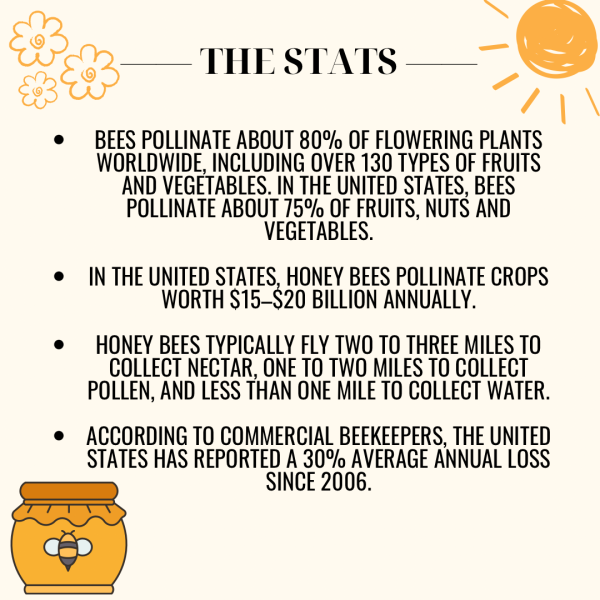USI to become official bee campus to support pollinators
USI has joined the Bee Campus USA program, a national initiative fostering pollinator-friendly environments on campuses. Bee-affiliated campuses partner with the Xerces Society for Invertebrate Conservation, a nonprofit organization based in Portland, Oregon. Bee Campuses offer a space for habitats conducive to pollinators and native plants, enhancing conservation and research opportunities.
According to the USI press release, this new designation was made possible by a $2,500 Endeavor Grant awarded to Nolan Durham, biology major, dedicated to promoting ecological conservation.
“I am interested in this project since the entirety of its breadth is what I envision a career for myself looking like,” Durham said.
He said he aspires to become a wildlife biologist and advocate for climate change awareness.
The $2,500 award is one small step towards a long-term commitment for the organization.
According to Bee City USA, a committee of students, faculty and at least one staff member from the university’s landscaping department is required. The committee meets to facilitate communication between the organization and staff involved in campus landscaping. The committee focuses on creating a pollination habitat that will thrive on university grounds.
To maintain the affiliation status the university has to apply each year to Xerces for review.

Edith Hardcastle, associate professor of biology, has led the initiative.
In the press release, she said the affiliation makes the campus a “living laboratory for conservation studies” and allows for “unlimited student research opportunities.”
“The survival of pollinators depends on the presence of native plant species. That’s why I was excited to join the effort to help USI become a Bee Campus,” Hardcastle said.
She said the program is already generating cross-disciplinary collaboration on campus and partnerships with local communities.
Starting this fall, USI will engage students and local residents through a new beekeeping group focused on sustainability and pollinator support. USI will have an apiary or a bee yard on the eastern hillside of campus completed with hives and bees by spring 2025.
The initiative also involves policy reviews on pesticide use, reducing chemical dependence and encouraging natural plant and insect control alternatives. Xerces strongly advocated reducing pesticide use to promote reliance on natural pest control methods.
Bee-affiliated campuses are urged to shift towards integrated pest management strategies that prioritize non-chemical controls when possible.
USI has already begun establishing pollinator-supportive gardens with native plants and pollinator habitats. These efforts extend beyond bees to include butterflies, moths, beetles and flies — species often overlooked in pollination’s vital role in food production.

